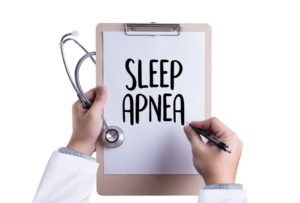Signs And Symptoms Of Sleep Apnea
 It’s a phenomenon that can make or break your functionality as a person. Sleep apnea affects millions of people every year, it keeps them from getting proper sleep and can greatly affect their relationships. Some people think that just loud snoring is the only thing that can link you to sleep apnea but that is not the case and there are some different scenario types that need to be considered.
It’s a phenomenon that can make or break your functionality as a person. Sleep apnea affects millions of people every year, it keeps them from getting proper sleep and can greatly affect their relationships. Some people think that just loud snoring is the only thing that can link you to sleep apnea but that is not the case and there are some different scenario types that need to be considered.
Types Of Sleep Apnea
First of all there is not just one type of sleep apnea we see, there are actually two. Obstructive Sleep Apnea is the most common and occurs when the muscles in the throat relax and obstruct the airways. Central Sleep Apnea which is where central nervous system has a glitch where the brain does not send the proper signals to the muscles that control breathing. Although they are different the most common signs of sleep apnea do overlap, you could have either version with these symptoms:
- Episodes of breathing cessation.
- Waking abruptly short of breath.
- Waking with dry mouth or sore throat
- Excessive loud snoring (more prominent with obstructive)
- Trouble staying asleep and tiredness during the day.
When To See A Doctor For Sleep Apnea
This can be a tricky situation to find yourself in as you may not be aware of how much this disorder may be affecting your sleep and in turn relationships and mood. When it becomes the most serious and you should definitely consider seeing a doctor is when you are experiencing or being told you experience these conditions:
- Snoring so loud it disturbs your sleep of the sleep of others around you.
- Shortness of breath, gasping for air and/or choking that wakes you up.
- Pauses in your breathing while you are sleeping.
- Excessive tiredness that may cause you to fall asleep when you are supposed to be doing something important like working or driving.
These specific occurrences are dangerous to your health and can affect you mentally and emotionally as well. It is important to get this checked out as it can affect your oral health as well. Looking into mouth guards or machines that might alleviate pressure from yourself is a good thing to consult your doctor about.